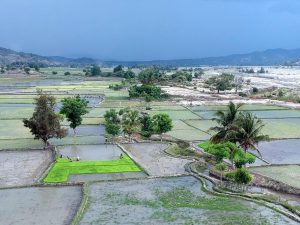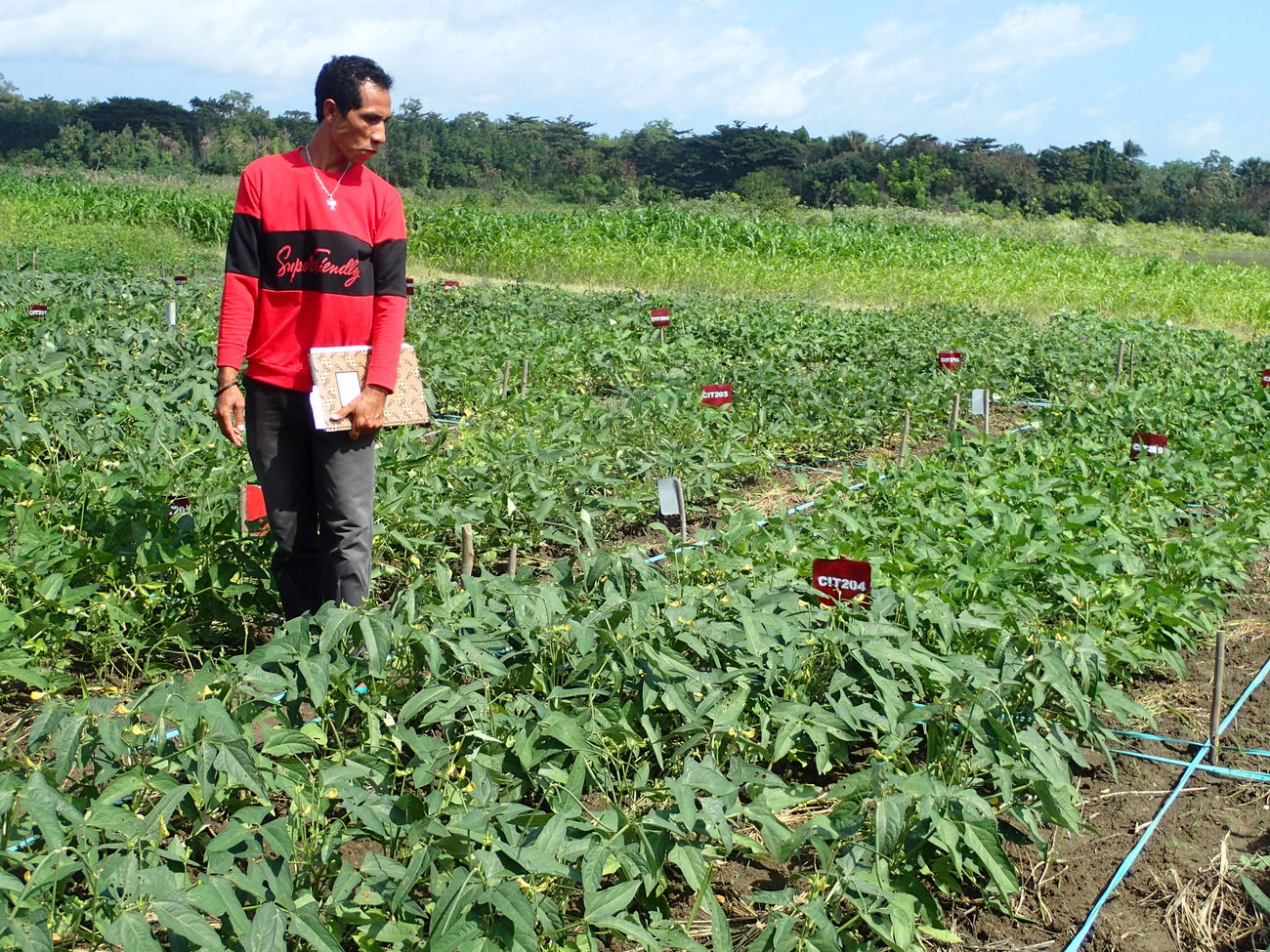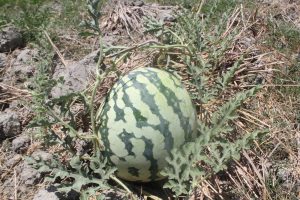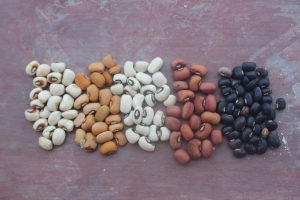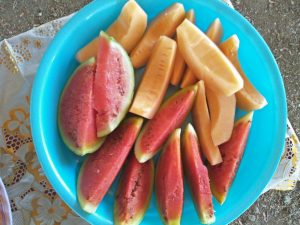Student researchers from the University of Timor Lorosa’e have this week demonstrated strong results from new experiments with cucumber crops at Laleia, in Timor-Leste’s Manatuto municipality.
The Buluto irrigation scheme, recently rehabilitated by JICA, allows for dry season production in the rice paddies. UNTL together with AI-Com is finding the best and most sustainable way of increasing farming incomes using irrigated horticulture crops in the dry season.
UNTL and AI-Com are finding the best and most sustainable way of increasing farming incomes using irrigated horticulture crops in the dry season.
Final-year students from the university’s agronomy department are now conducting on-farm experiments in the Buluto irrigation area managed by UNTL.
After local farmers witnessed the benefits of student-led research at another collaborative research site between UNTL and AI-Com at nearby Vermasse, in Baucau municipality, in 2017, they requested UNTL and AI-Com to conduct similar research at Laleia.
Laleia sits near Timor-Leste’s north coast, in one of the region’s most arid areas. While irrigated water and flat land make good growing conditions for rice and other dry-season crops, the poor health of the soil means crop yields are very low: Timor-Leste’s field average a production rate of approximately 2.2 tonnes of crop per hectare, while world averages sit at approximately 5 tonnes per hectare.
Now, student-led experiments are investigating how different applications of different types of organic and inorganic fertilisers can help improve crop yields, to strengthen crop production for local farming families. UNTL students have demonstrated strong results at both Vermasse and Laleia – early experiments with large doses of the organic fertiliser rice hull biochar at Laleia increased tomato yields by more than 400 per cent in 2017, and students at Vermasse have similarly used biochar to increase chili crop production by 160 per cent.
Now, student researchers have successfully harvested good-looking cucumbers at Laleia. This result shows that cucumbers – a high-value horticulture crop – can be successfully produced at Laleia, and that local farming families can adopt this practice in neighbouring areas to produce new crops for sale at markets.
